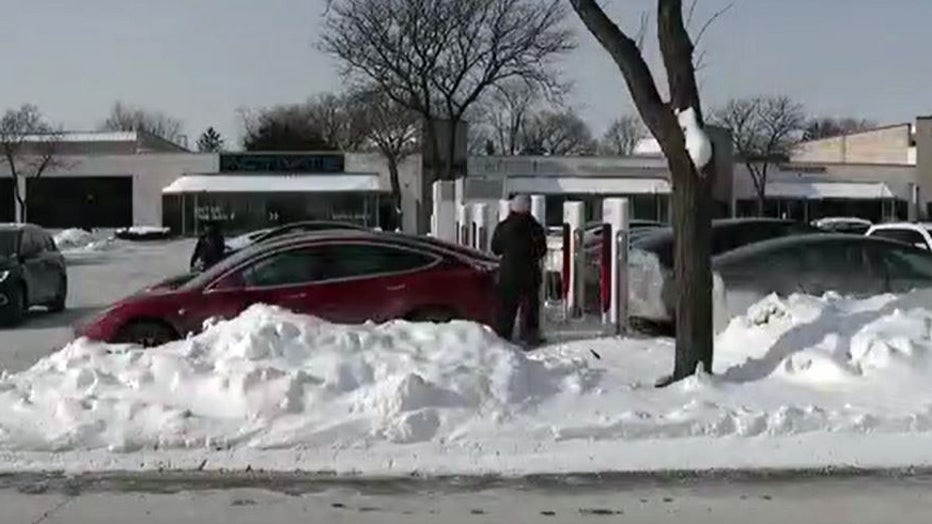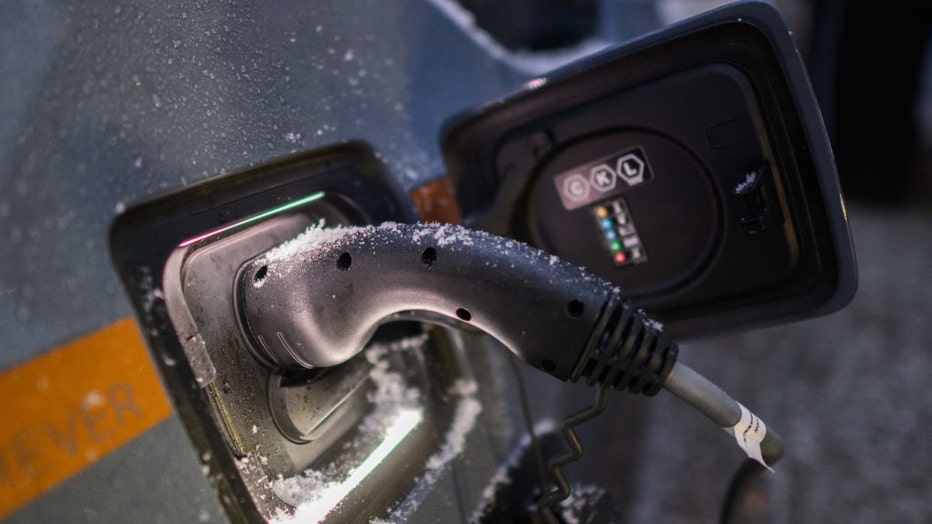How does cold weather affect electric vehicles?

'Dead robots': Chicago's extreme cold knocks out Tesla cars
Electric vehicles may be the way of the future, but many EV owners are having trouble dealing with Chicago’s bitterly cold temperatures.
Electric vehicle owners have a lot to think about when temperatures plunge in the winter beyond ensuring the heat is running in the car. Cold weather can take a toll on these vehicles, specifically the battery range.
To determine the effectiveness of EV batteries in cold weather, AAA conducted a test to see how they perform in these conditions.
Robert Sinclair, a AAA spokesperson, described the test to FOX Weather, explaining that when electric vehicles operated in 20-degree temperatures, the range fell 41%. However, when the Norway Automobile Association conducted a similar test, EV range fell only 20%.
He also noted that non-electric car batteries are impacted by cold weather.

Some Tesla owners in Chicago were unable to charge their vehicles in the bitter cold. (FOX 32 photo)
RELATED: Tesla supercharging station packed in Oak Brook, dead cars line parking lot due to frigid temps
Sinclair explained to FOX Weather that cold weather impacts the chemical reaction in the lithium-ion battery, which powers an electric vehicle, and it also affects a lead-acid battery that starts the engine in a gas-powered car.
Cold weather can slow down both batteries and further diminish the battery range in EVs.
According to AAA’s website, an EVs effectiveness can depend on if the battery is "preconditioned," this means when the temperatures are hot or cold outside, this method can heat or cool the battery to a more moderate temperature that allows it to charge and deliver electricity quicker, while extending the life of the battery.
When managing cold conditions, EV owners can leave the vehicle plugged in or turn on the heater for 20 minutes before leaving the house.
AAA notes that following these steps and instructions in the owner’s manual can make charging the battery easier and driving more efficient.

FILE-Snowflakes lie on the charging cable of an electric car at a charging station. (Photo by Julian Stratenschulte/picture alliance via Getty Images)
While cold temps can impact EV battery performance, Sinclair tells FOX Weather that they still come in handy when the vehicles drive in snow.
"Generally, the batteries are under the floor, and they're big, and they're heavy," Sinclair said. "And when you've got a lot of weight in the vehicle down low like that, that lowers the center of gravity and helps to improve handling."
The extra weight can help bolster traction for electric vehicles. He added that getting a quality set of winter tires can manage the cold conditions and battery efficiency.
Should you warm up your car in cold weather?
Drivers of gas-powered vehicles are not immune to winter-weather headaches. Some drivers prefer to start their car and let the engine warm up for a few minutes before pulling away. Several auto experts believe this may not be conducive to preserving the engine.
Firestone Complete Auto Care explains on its website that cars with modern fuel injection systems can be driven by simply starting the engine without the car warming up.
The auto service company notes that idling your engine could damage it while minimizing the car's fuel efficiency, which is harmful to the environment due to fumes emitted from the engine that pollutes the air.
FULL STORY: Warming up your car in cold weather can damage your engine. Here's what to do instead
FOX Weather contributed to this report. This story was reported from Washington, D.C.

